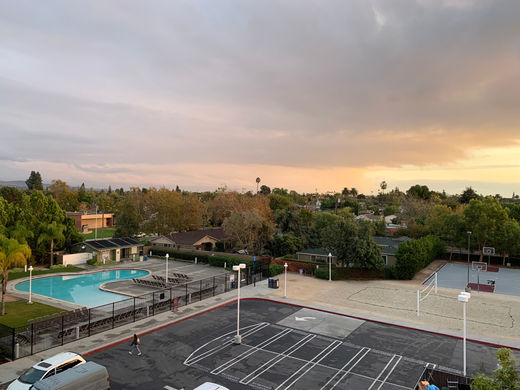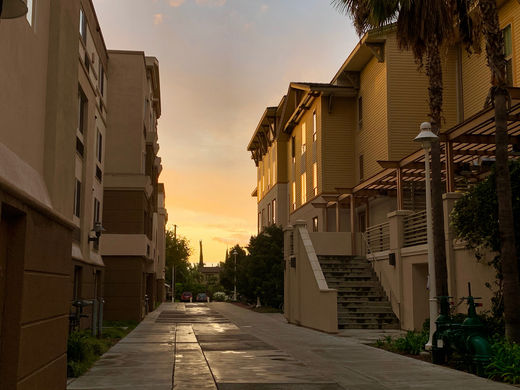O N & O F F C A M P U S H O U S I N G
On-Campus Housing
This is an easy option for most people who want the convenience of living on campus and not having to deal with the issue of finding parking, or beating the morning traffic. At Chapman, first year students are now required to live on campus for the first two years.
Off-Campus Housing
Regardless of where you go to school, there will be options for off-campus housing. Some schools, like Chapman University offer off-campus university affiliated housing and provide shuttles to and from campus. However, the more common option is to rent, unaffiliated with the university.
One of the biggest issues regarding living situation is the cost of rent. Depending on where your college is located, the cost will vary.
One thing to note with living off-campus unaffiliated housing is that apartment complexes will likely raise your rent after one year of living there!
Rent
On-Campus Housing
Pros
-
You can wake up later!
-
Get to class quicker!
-
No Parking issues!
-
You will meet more students!
-
Usually cheaper!
Cons
-
You're always at school
-
Sometimes you may not get to pick who you want to live with
-
Depending on the school and their leasing periods, you may not be able to leave your belongings over the breaks
Off-Campus Housing
Pros
-
Independence!
-
You can pick WHERE you want to live!
-
You can pick WHO you want to live with!
Cons
-
Rent is usually more expensive
-
You will likely have to pay a 12-month lease even if you won't be living there over the breaks.
-
You may need a car to get to and from campus.
-
Apartment complexes will likely raise your rent after your first term is up.
Resident Advisors
-
Your Resident Advisors will be your main source of contact in all issues related to the University. They will assist you in finding resources surrounding academics, career services, social organizations, psychological services, and many other facets of the University experience. They are trained in mediation, diversity and inclusion, crisis prevention, sustainability, and community building to give the residents the best first year experience possible.




